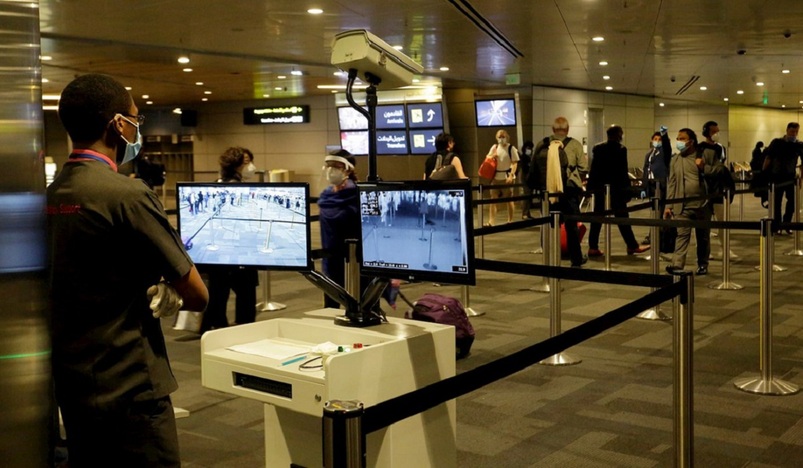
Mandatory Rapid Antigen Test for Returning Travelers to Qatar
Travelling back to Qatar? If you are planning to re-enter the country, it is important to note that there are new COVID-19 testing protocols that the Ministry of Public Health (MoPH) has recently announced.
In the Frequently Asked Questions (FAQs) published by the Ministry on its website, it has clarified that a Rapid Antigen Test (RAT) is mandatory for all the travelers returning to Qatar, and not the Polymerase Chain Reaction (PCR) test.
The first question and answer in the FAQs list is stated as follows:
Q. Which type of COVID-19 test do returning travelers require?
A. Travelers retuning to Qatar who are required to have a COVID-19 test following arrival back in Qatar should have a Rapid Antigen Test (not PCR) at an authorized medical center.
Read the full FAQs list here: COVID-19 Testing in Qatar Frequently Asked Questions (FAQs)
The Ministry has clarified that returning travellers required to have a Covid-19 test following arrival back in Qatar, (those eligible for home quarantine), should have a Rapid Antigen Test and not PCR at an authorised medical centre.
MoPH also noted that people under 50 with signs and symptoms of Covid-19 should have a Rapid Antigen Test, available at more than 100 private hospitals and clinics in Qatar at a cost of QR50 per test. Test results at private centres are usually delivered within 15 minutes.
Rapid antigen tests are also available at all 28 health centres of the Primary Health Care Corporation (PHCC). The results will be sent to individuals via SMS within two hours of the test and reflected in Ehteraz no earlier than four hours after the test.
Rapid antigen tests at PHCC health centres are charged: QR50 for unvaccinated individual for work or school purposes; QR50 for post-travel tests; but free for eligible people with signs and symptoms of Covid-19 or close contacts of infected cases.
The health ministry has approved the use of antigen tests at authorised public and private centres for:
• people under 50 with Covid-19 symptoms
• people under 50 who are close contacts of confirmed Covid-19 cases
• travellers returning to Qatar who require post-travel Covid-19 tests
The new drive-through centre in Lusail offer only PCR tests and not antigen tests. Those eligible for tests at the centre are:
• people 50 years and above with signs and symptoms of Covid-19 (free of charge)
• people 50 years and above who are close contacts with a confirmed case (free of charge)
• pre-travel PCRs
• must provide proof of travel (QR160 paid by credit card, no cash payments)
• pre-operative patients (free of charge)
PHCC health centres do not offer pre-travel PCR tests. People can approach more than 100 private medical centres and the Lusail drive-through test centre for the same.
The MoPH also suggests that Rapid Antigen Self-Test can be used for:
• Individuals with mild or moderate symptoms and who suspect they may have Covid-19
• Asymptomatic individuals who suspect that they have Covid-19 due to being in close contact with a confirmed infected person
• Individuals who want to check their Covid-19 status before visiting a vulnerable family member or friend and for testing before a social gathering
Individuals who test positive after taking a rapid antigen self-test should isolate themselves at home and avoid contact with family and friends. They may visit an approved medical facility for an official Covid-19 test to obtain a certificate and have their Ehteraz status changed.
Rapid antigen self-test results may not be used for official purposes such as:
• pre-travel testing
• changing Ehteraz health status
• sick leaves
• official health certificates
Rapid antigen self-tests are available in authorised pharmacies and Al Meera hypermarkets throughout Qatar at a maximum cost of QR35 per test, with a limit of 10 tests per person, per transaction.
Source: MoPH
.jpg)
Qatar Secures Place Among the World's Top 10 Wealthiest Nations
.jpg)
Hamad International Airport Witnesses Record Increase in Passenger Traffic

Saudi Arabia: Any visa holder can now perform Umrah

What are Qatar's Labour Laws on Annual Leave?
Leave a comment